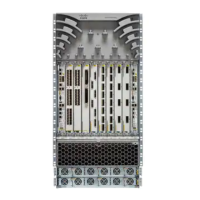DefinitionCategory
These Tcl command extensions are represented by
the sys_reqinfo_xxx family of system-specific
information commands. These commands are used
by a policy to gather system information.
EEM system information Tcl command extensions
These Tcl command extensions are used to store and
retrieve a Tcl context (the visible variables and their
values).
EEM context Tcl command extensions
Cisco File Naming Convention for Embedded Event Manager
All EEM policy names, policy support files (for example, e-mail template files), and library filenames are
consistent with the Cisco file-naming convention. In this regard, EEM policy filenames adhere to the following
specifications:
• An optional prefix—Mandatory.—indicating, if present, that this is a system policy that should be
registered automatically at boot time if it is not already registered; for example, Mandatory.sl_text.tcl.
•
A filename body part containing a two-character abbreviation (see table below) for the first event
specified; an underscore part; and a descriptive field part that further identifies the policy.
•
A filename suffix part defined as .tcl.
EEM e-mail template files consist of a filename prefix of email_template, followed by an abbreviation that
identifies the usage of the e-mail template.
EEM library filenames consist of a filename body part containing the descriptive field that identifies the usage
of the library, followed by _lib, and a filename suffix part defined as .tcl.
Table 4: Two-Character Abbreviation Specification
SpecificationTwo-Character Abbreviation
event_register_applap
event_register_counterct
event_register_statst
event_register_noneno
event_register_oiroi
event_register_processpr
event_register_rfrf
event_register_syslogsl
Cisco ASR 9000 Series Aggregation Services Router System Monitoring Configuration Guide, Release 4.2.x
47
Configuring and Managing Embedded Event Manager Policies
Embedded Event Manager Scripts and the Scripting Interface (Tcl)

